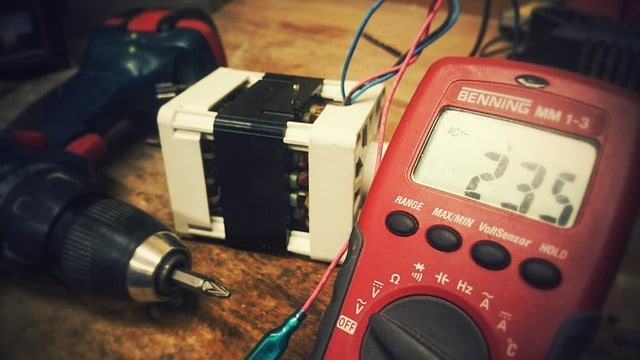Transitioning Careers: How To Start A Career in Trades After 30

Deciding to become a tradie later on in life is a gutsy decision that opens the door to a world of hands-on possibilities – and a fresh breath of life, full of opportunity in the trades industry.
If you’re considering this exciting transition, follow our informative guide, divided into five main sections, to help you navigate the path to a fulfilling tradie career.
Section 1: Exploring Your Passions and Interests
Before diving into the tradie world, take a moment to identify your passions.
Reflect on tasks that you love to do and explore how these align with the diverse trades available. This initial self-discovery sets the stage for a career that resonates with your interests.
Consider creating a list of activities or projects you’ve enjoyed in the past. Whether it’s working with your hands, solving practical problems, or engaging in creative endeavours, these insights will guide you towards trades that offer genuine satisfaction.
Do some research into the emerging innovations and trends in the sector of your choice, see which trends or innovations excite you most, and try to find a way to incorporate this into your new career
Don’t rush this process – take the time to envision your ideal workday and the type of tasks that bring you joy. It’s this passion that will sustain your motivation as you embark on your journey into the trades.
Section 2: Assessing Your Transferable Skills to the Trades
Your existing skill set is more valuable than you might think!
Whether you’re transitioning from an office job or another profession, analyse your skills – be it communication, problem-solving, or teamwork. Recognise how these skills seamlessly integrate into the dynamic world of trades.
Start by listing your core skills and consider how they can be applied in a tradie context. For instance, if you excel in project management, envision how these skills can be transferred to overseeing construction projects or managing electrical installations.
Embrace your adaptability – tradies welcome individuals with diverse skill sets. As always, the most important trait you can have is a willingness to learn, try new things, and adapt to a new environment.
For example, if you have previously worked with 3D printing technology, there is a whole new industry in 3D printed Housing, with tons of new career opportunities for those with a passion for cutting-edge technology.
Your ability to navigate different professional environments positions you as a valuable asset in the ever-evolving trade sector.
Section 3: Researching Your Trades Options
The tradie sector is vast, ranging from construction to electrical work and plumbing. Research different tradies, understand their requirements, and identify the demand in your local market. Engage with professionals, attend industry events, and gather insights to make an informed decision.
Some possible trades available to you as entry-level roles include:
- Plumbing, Gasfitting, and Drainlaying
- Automotive
- Electrical Engineering
- Mechanical Engineering
- Geothermal Engineering
- Industrial measurement and control (IMC) technician
Wintec in Hamilton offers courses for all of these – and more! Including short courses as well the perfect way to dip your feet into exciting new career opportunities.
Start by exploring online resources, industry publications, and trade association websites. Connect with professionals in your chosen trades through networking events or online platforms, such as LinkedIn.
Discussing their experiences can provide valuable insights into the day-to-day realities of the profession.
Chat with a few seasoned tradies. This firsthand knowledge will not only deepen your understanding but also help you build a network within the tradie community.
Ask about the challenges, rewards, and key skills required for success in their respective trades.
Section 4: Navigating Educational Trades Pathways
With your interests and potential trades in mind, explore educational pathways. From apprenticeships to vocational training programs and trade schools, find an option that aligns with your goals. Consider the flexibility and structure that best suits your learning style.
Apprenticeships are a cornerstone of entering the tradie world. These programs offer a unique combination of on-the-job training and classroom instruction, allowing you to earn while you learn. Research local apprenticeship opportunities in your chosen tradie and understand the requirements for application.
Community colleges and trade schools provide more structured educational paths. Look for programs that offer hands-on training, industry-relevant curriculum, and opportunities for internships or practical experience. Balance the duration and intensity of the program with your own personal commitments.
Section 5: Apprenticeships and Beyond: Gaining Practical Trades Experience
Apprenticeships provide a hands-on learning experience while earning a wage. Seek out opportunities in your chosen trade, as they combine practical training with theoretical knowledge.
For example, ETCO offers electrician apprenticeships for three years and nine months, during which they will manage your work, find you a company to work in and manage any issues that arise. Find a company that works for your chosen field, as this will make the process of getting qualified a lot easier.
Additionally, you can gain practical experience through workshops, volunteer work, or part-time roles to build your expertise.
During your apprenticeship, actively seek opportunities to apply your theoretical knowledge in real-world scenarios.
Engage with experienced professionals, ask questions, and demonstrate your commitment to learning. The practical experience gained during this period is invaluable for your future success.
Beyond formal education and apprenticeships, take a few workshops at your local school or volunteer your help for some hands-on projects.
These experiences allow you to hone your skills further, expand your network, and showcase your dedication to potential employers.
As you navigate these sections, remember to celebrate both successes and challenges. Your journey into the tradie world is a transformative one, filled with opportunities for growth and fulfilment.
By embracing this guide, you’re well on your way to creating a profitable and rewarding future in the trades – may your new chapter be marked by craftsmanship, satisfaction, and continual learning.
A New Chapter In The Trades Is Yours To Take!
As we reach the end of this guide, envision the exciting chapter ahead. Starting a trade career later in life is not just a career change; it’s a journey towards hands-on fulfilment and tangible contributions to the world around you.
Embrace the unique combination of your passions, transferable skills, and the practical knowledge gained through education and apprenticeships.
With dedication and a commitment to continuous learning, your journey in the tradies promises growth, satisfaction, and a legacy of craftsmanship.
As you embark on this transformative path, remember that the tradie community welcomes individuals of all ages, and your unique journey brings a wealth of experiences that enrich the diverse tapestry of the trade sector.
Here’s to crafting a career that aligns with your passions, leverages your skills, and allows you to contribute meaningfully to the tangible creation of the world around you. All the best for leaving the office or your old life behind and starting a new, exciting future in the trades!
Get your business noticed by creating an online directory listing. Listings are FREE and you can create as many as you need.
- Get found by locals




